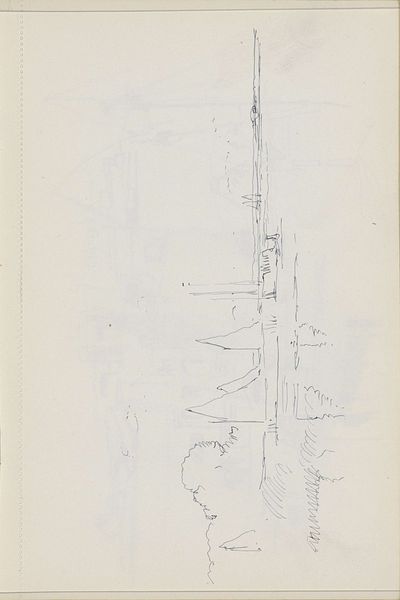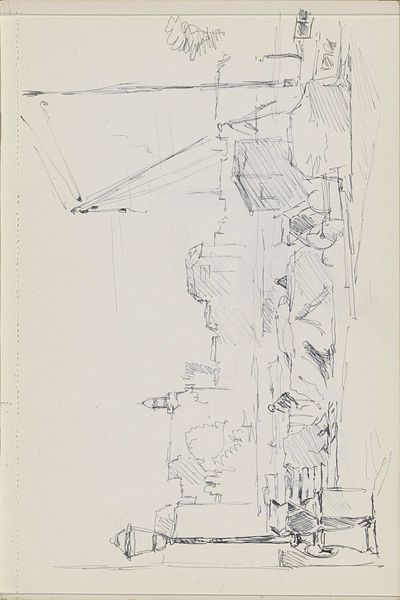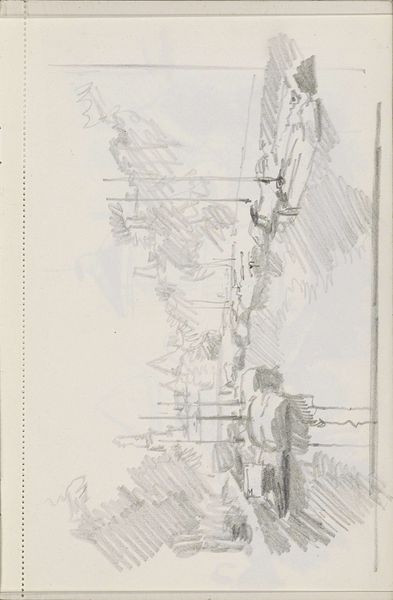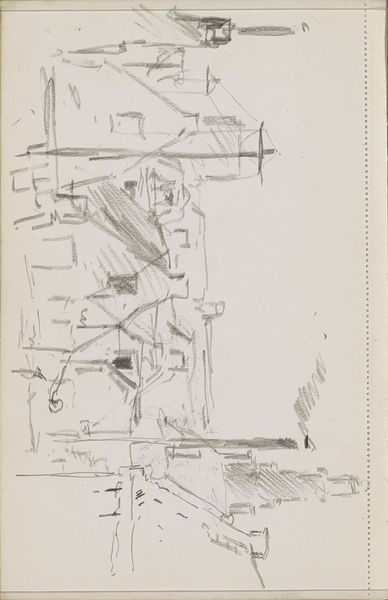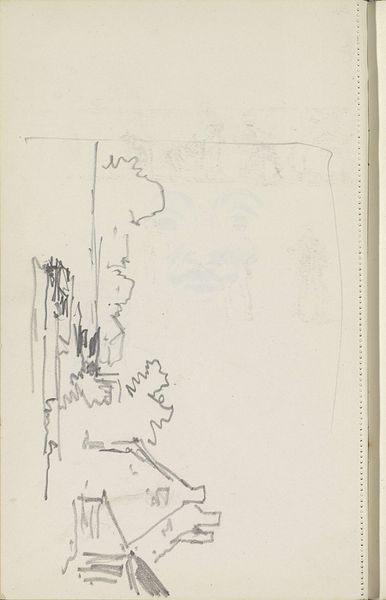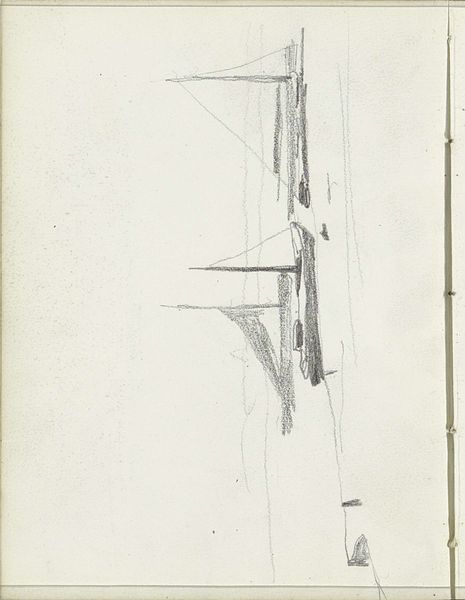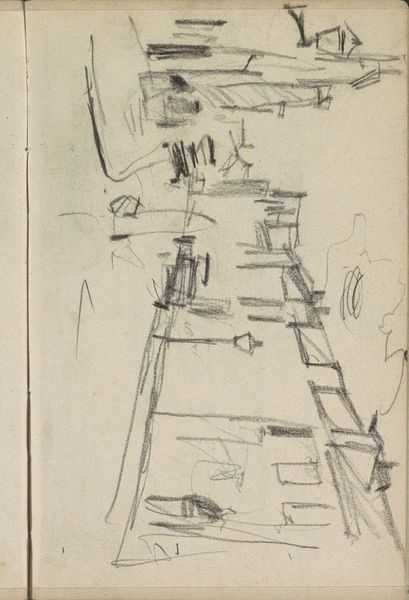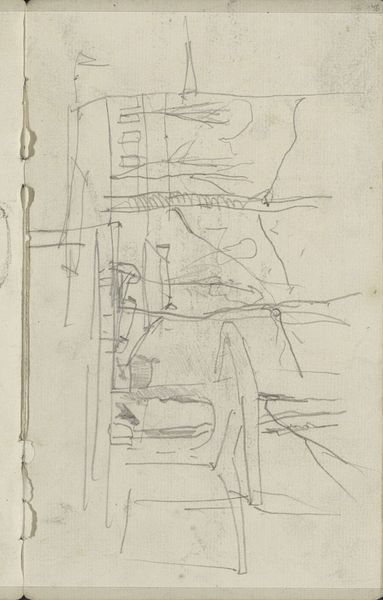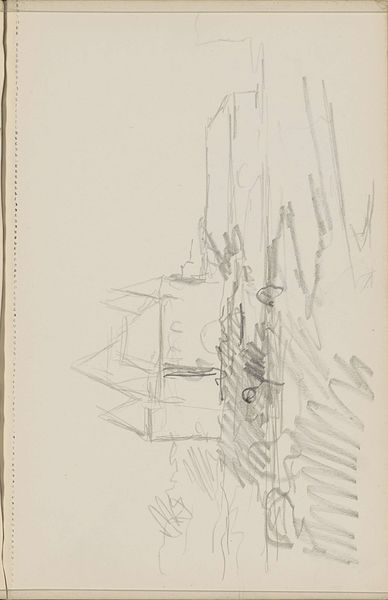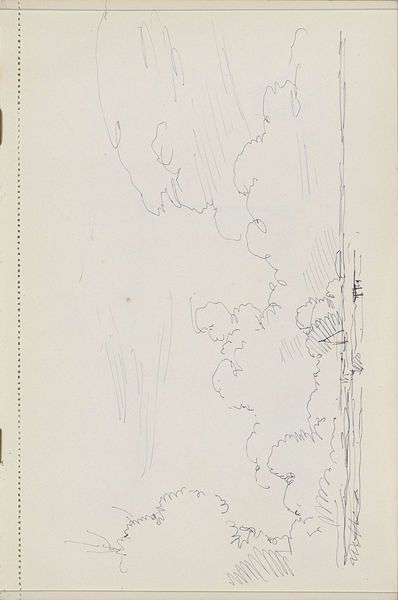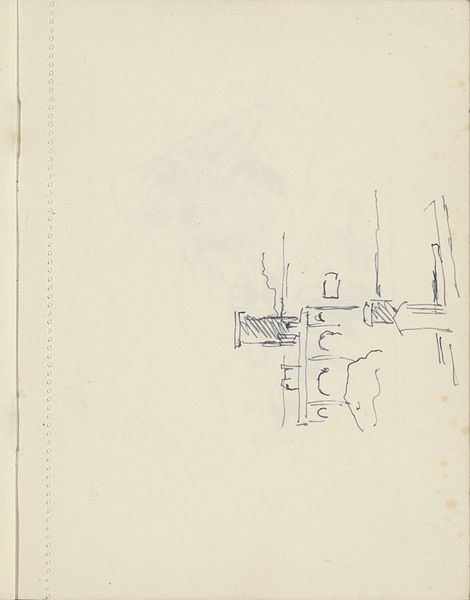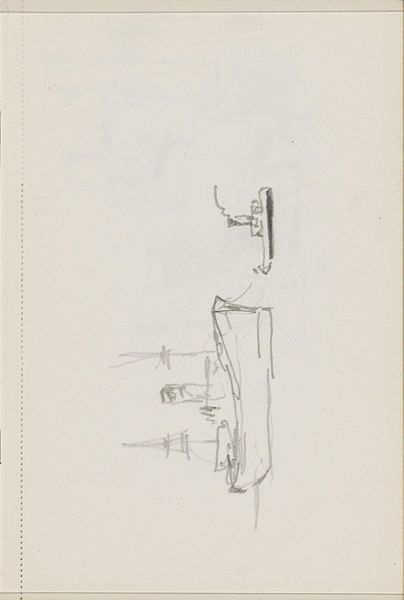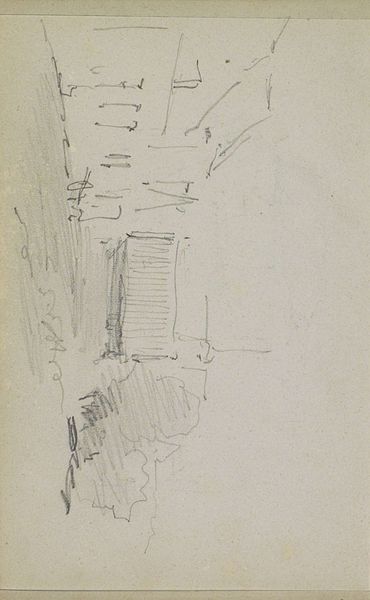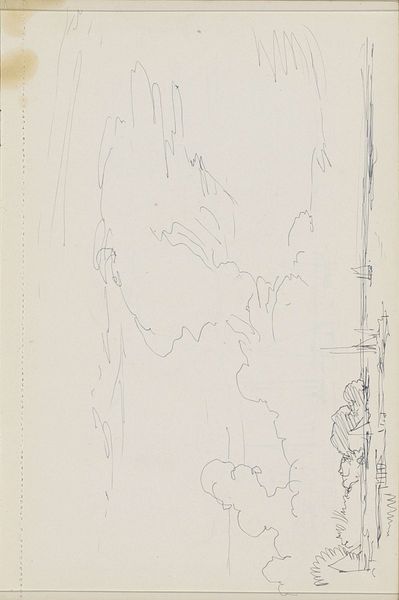
Copyright: Rijks Museum: Open Domain
Editor: So here we have "Zeilboten op het water," or "Sailboats on the Water" by Cornelis Vreedenburgh, made sometime between 1890 and 1946. It's a pencil drawing on paper, currently held at the Rijksmuseum. It strikes me as very fleeting, almost as if Vreedenburgh was trying to capture a scene as quickly as possible. What stands out to you? Curator: What’s fascinating here is Vreedenburgh’s use of readily available, inexpensive materials – pencil and paper. This choice moves away from the traditional notion of high art requiring precious metals or oils. Consider the societal context. During this period, the increasing accessibility of materials like pencils due to industrial production meant more people, not just formally trained artists, could engage in image-making. How does this democratisation influence our interpretation of the work? Editor: That's a good point. I hadn't really thought about the availability of materials at the time. So, this sketch represents not just an artistic study, but also speaks to broader shifts in who could participate in art making? Curator: Precisely! And consider the labour involved. Unlike a finished oil painting which requires extensive studio work, this sketch highlights the immediate, physical act of drawing. The very lines on the paper record the artist's hand and the speed of execution. We’re seeing art less as a product and more as documentation of a process. Notice the sketch-like quality, indicating a focus on the rudimentary aspects of art making. Do you agree? Editor: I do! It's definitely more about the process than the final, polished product. It's also amazing how something so simple can capture a whole scene. Curator: Absolutely. The piece is indeed insightful. Appreciating how Vreedenburgh manipulated ordinary materials shifts our understanding of art's value beyond just aesthetics, placing emphasis on the socio-economic dynamics influencing artistic production. Editor: I’ve definitely learned something new today. Seeing it as more about access and labour changes the whole feeling.
Comments
No comments
Be the first to comment and join the conversation on the ultimate creative platform.
